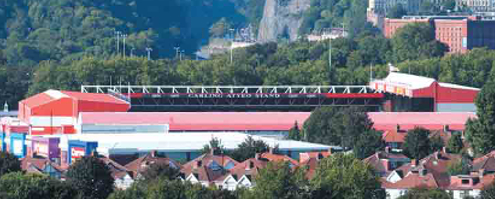The Supporters Club & Trust will shortly be submitting an application to register Ashton Gate as an asset of community value in order to safeguard the future of Bristol City supporters’ second home.
A successful application will mean that any proposed sale of the stadium would have to be notified to supporters and an opportunity would exist to mount an alternative bid to that of the proposed purchaser if fans had concerns about the intended buyer.
The opportunity to safeguard Ashton Gate in this way is created by part 5, chapter 3 of the Localism Act 2011, which provides for a scheme called ‘assets of community value’. Part of the Government’s community empowerment agenda, it requires a local council to maintain a list of ‘community assets’.
Nominations for community assets can be made by parish councils or by groups with a connection with the community. If the nomination is accepted, the group will be given time to come up with a bid for the asset when it is sold. The right to bid only applies when an asset’s owner decides to dispose of it. There is no compulsion on the owner of that asset to sell it. The scheme does not give first refusal to the community group, unlike the equivalent scheme in Scotland; and it is not a community right to buy the asset, just to bid. This means that the local community bid may not be the successful one.
Several stadia around the country have already been registered in this way, most notably Old Trafford. While it is unlikely in most cases that any supporters’ group would be able to mount a successful counter bid in the event of their club’s stadium being offered for sale, having it registered as an ‘asset of community value’ does at least mean that it can’t be sold without the supporters’ knowledge and without a period of six months, during which the pros and cons of any such sale could be publicly debated.
